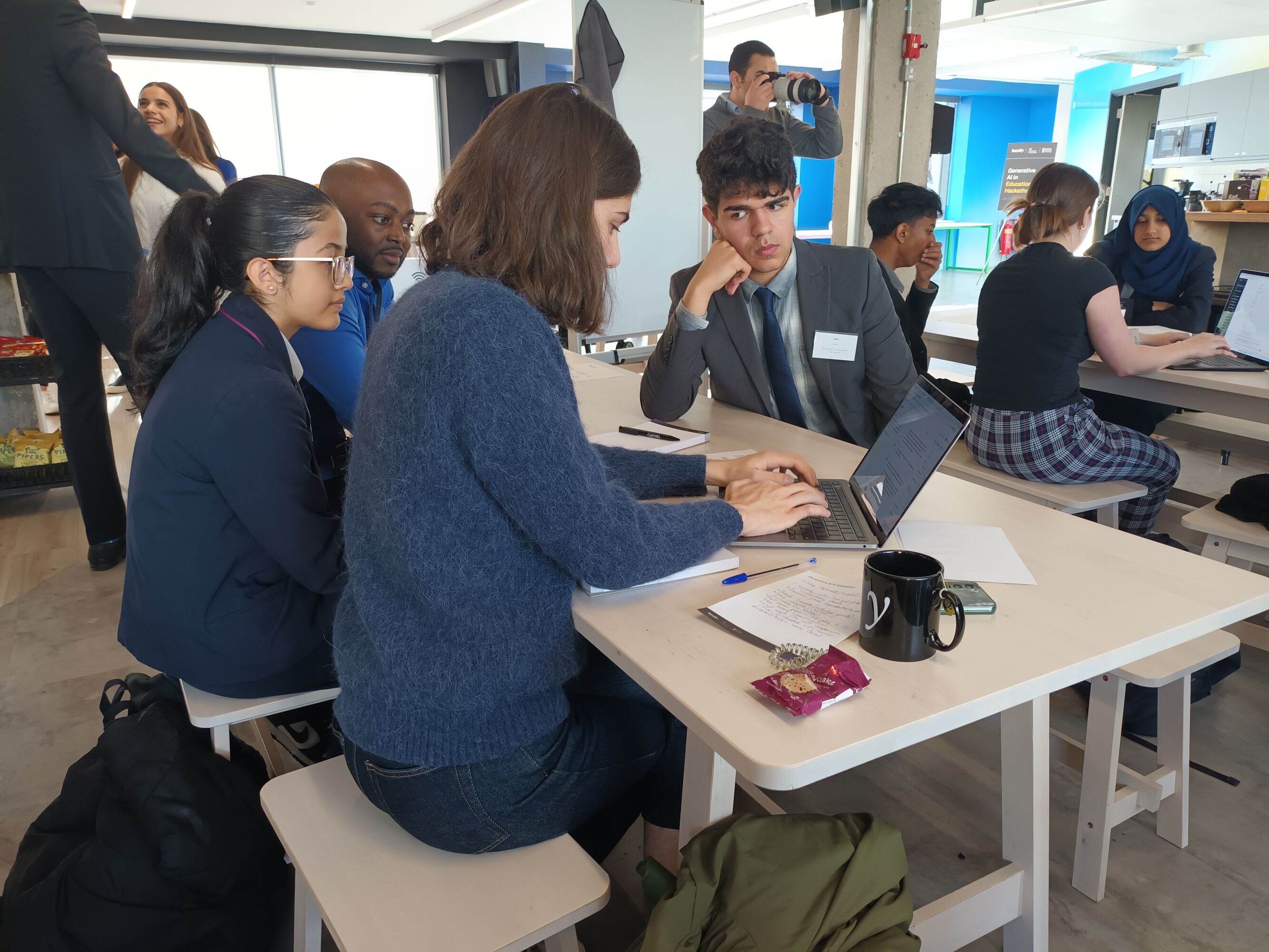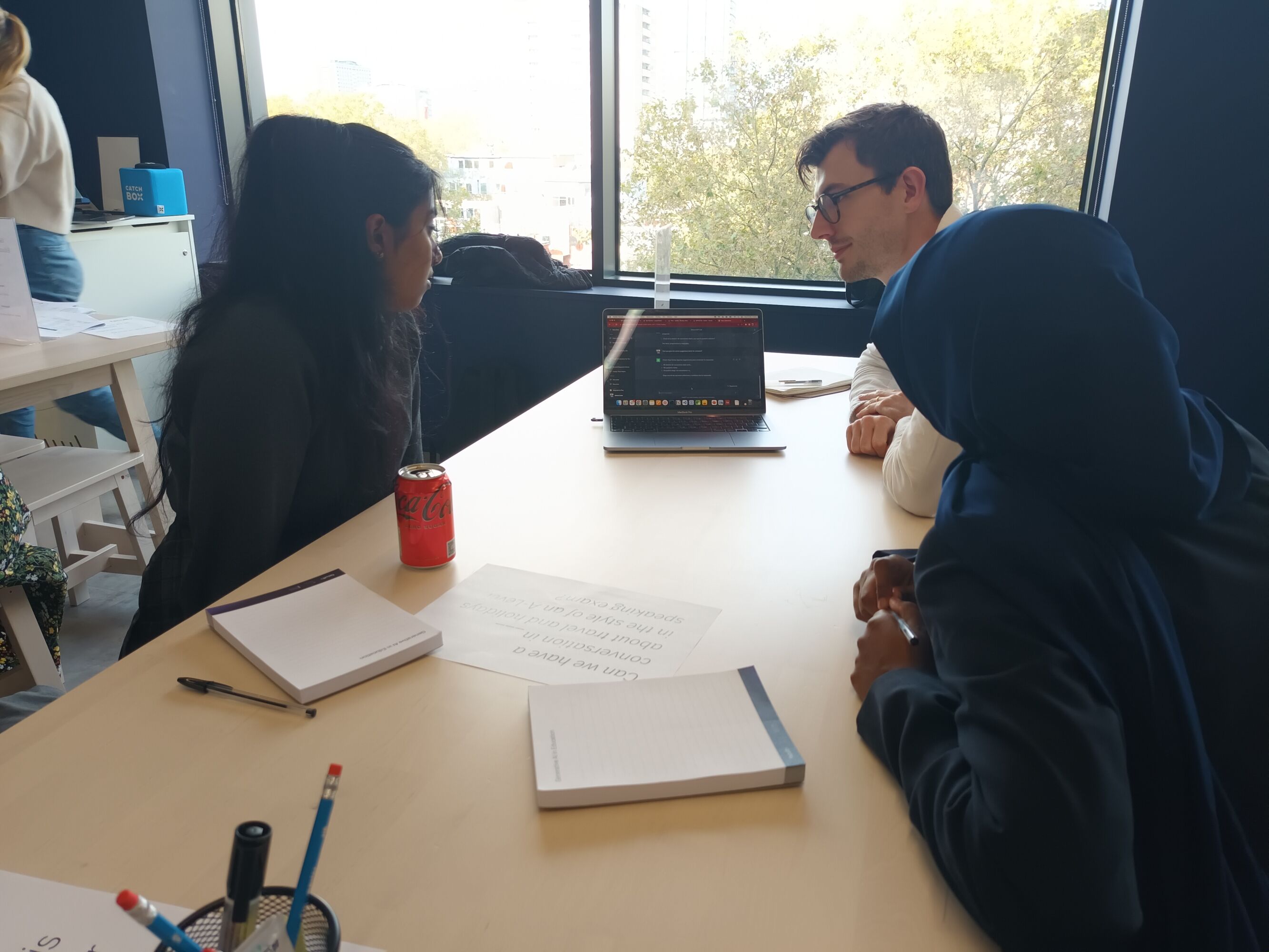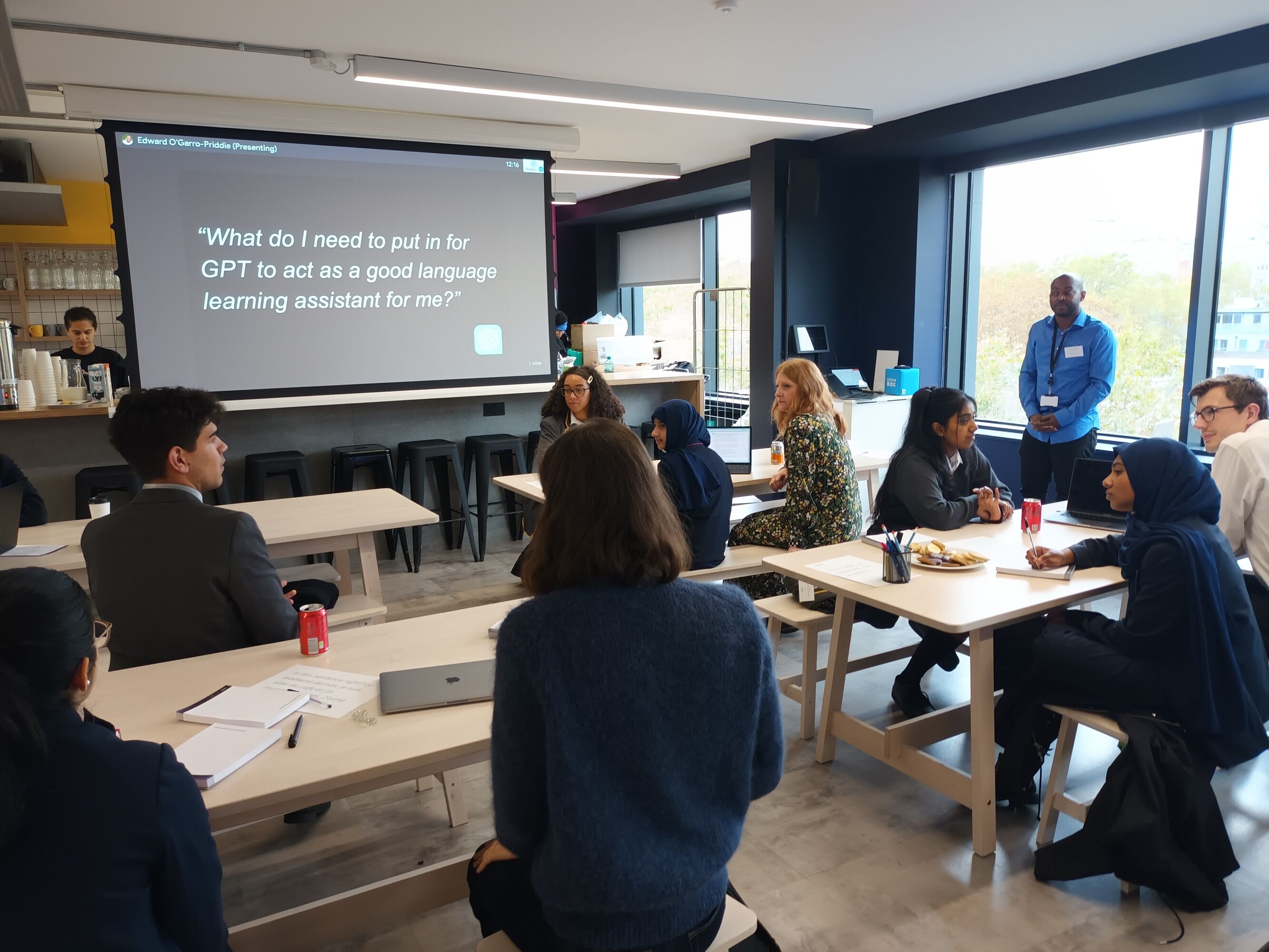Exploring AI in education: What we learnt from the first hackathon
In October 2023, teachers, school leaders, members of the Department for Education, and data scientists came together to participate in an artificial intelligence (AI) hackathon as part of a two-day event to explore the potential use of AI in education.
It is evident that with the rise in popularity and access to AI, there is a profound transformation happening across several sectors. AI is having a far-reaching impact in reshaping traditional practices, enhancing efficiency, and opening up new possibilities.
This government-led initiative in collaboration with the National Institute of Teaching, FacultyAI, and researchED has kicked off the process of understanding how AI and technology advancements could be used in schools across the country.

How can we benefit from the impact of AI-driven tools?
Participants experimented with AI to test its capability and potential in a range of scenarios, for example whether it could write a lesson plan or accurately mark exam papers.
One of the key points of exploration was how it could support with assessment and marking. Hazel Hatch, Computer Science Consultant, said that with extensive refinement, it "delivered some good feedback and a whole class summary".
It also demonstrated strong ability to identify and rectify grammar errors, offering clear explanations and suggesting relevant 'try now' tasks to address the gaps in the original work. The system was also able to generate synthetic texts and construct comprehension tasks.
However, it did have issues as "it was unable to grade an essay accurately and had very low consistency".
A more promising use of AI in the classroom has been called the 'Teaching Assistant's Assistant' (TAA). There was positive feedback about how the technology can help teaching assistants in the classroom, helping them with a lesson by answering questions that they or the students have, or by refining texts to be suitable for the students they are supporting.
David Shanks, Lead Languages Consultant fed back that AI "did a great job of summarising the content for the Teaching Assistant, providing them with nicely presented questions and answers for them to ask the student".
Better support for admin tasks
As well as supporting with teaching, AI offers a real opportunity to automate some of the more administrative tasks that exist in education, which could take some burden away from support staff and senior leaders.
Recruitment of staff is a priority in education, and AI showed its potential in aiding the recruitment process by checking the quality of job adverts, and evaluating them from the perspective of different candidates.
At the event, participants also explored how AI could help draft and review school and Federation-wide policies. There is also the potential for it to be able to check existing policies for quality and against current legislation.
It was also able to act as a practical tool for creating scenarios in professional development, helping staff prepare for different situations. As an example, it can simulate a 'disgruntled parent' to assist pastoral staff in rehearsing meetings effectively.
AI could also help senior leadership teams (SLT) by guiding their discussions around interventions, giving a good general list of pros and cons to that approach. "This could easily form the basis for further debate and investigation saving time and preventing lost effort when implementing change," said Ross Arnold, Assistant Principal at Harris Academy Wimbledon.

The impact on the curriculum
As well as helping to save staff time and efforts, it's important that we are providing students with the most up-to-date information. "Not only are we training our staff, but our Computer Science curriculum has been adapted to include teaching students how to use AI safely, ethically and effectively as AI will play a major part in their future careers and further education," said Jonathan O'Donnell, Computer Science Consultant and the Lead for AI at the Federation.
By recognising the significant role AI will play, it is important that students are well-prepared and knowledgeable about the responsible use of this technology. Students should be equipped for their current studies but also ready for future advancements in AI technology and its applications.
Are there downsides to using this technology?
All of our staff who attended the event shared an important consideration when implementing this technology: there is still a need for humans and doesn't replace the need for staff.
Ross explained, "All these points are caveated by the necessity to have a human in the loop". AI itself doesn't provide solutions, but "it can support decision making and automate the mundane tasks".
As AI becomes increasingly integrated into our daily lives, its ability to analyse vast amounts of data, make intelligent predictions, and automate tasks is not only revolutionising how we work and live, but also challenging us to consider the ethical and social implications of this technological advancement.
For example, when you are dealing with vulnerable young people, it raises questions about human-machine interaction, the security of AI systems, and autonomy. What happens to the data that is being input? Can AI be used in environments which are tightly regulated?
As Jonathan explains, "Our first priority when using any new technology is always safety which is why we will not use any personal data of our students or staff".

Reflections on the event
The government will now review the outcomes of the event, which involved teachers and students from a variety of trusts, with a view to delivering a demo of the best tools for schools across the country to test and use.
As a Federation, we see AI as a hugely beneficial assistive tool, our staff members have already saved many hours of lesson preparation time utilising AI for:
- Generating questions and answers
- Adapting resources for the needs of students
- Suggestion lesson activities
- Recommending influential figures to inspire students
- Generating new and interesting scenarios for tasks
- Creating songs and poems to teach concept
We are committed to exploring how AI can enhance the quality of education for our students and equip them with the skills and knowledge to use it effectively, safely, and ethically. Our optimistic approach is geared towards identifying ways that these innovations can be used to benefit both students and staff.
Connect with us…
and stay up to date with all things Harris Careers!




